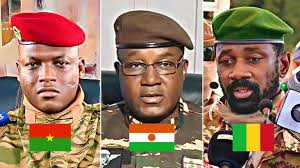
The presidents of the parliaments of Mali, Niger, and Burkina Faso presented the preliminary draft of the founding text for the confederal parliament of the Alliance of Sahel States (AES) to Burkina Faso’s head of state, Captain Ibrahim Traoré, on Friday in Ouagadougou.
Led by Dr. Ousmane Bougouma, President of Burkina Faso’s Transitional Legislative Assembly (ALT), the delegation explained that the draft had been submitted to Captain Traoré for transmission to his counterparts in Mali and Niger for review and adoption.
“We have just forwarded the preliminary draft to Comrade Captain Ibrahim Traoré so that he can transmit it to his counterparts in Mali and Niger for adoption with a view to quickly establishing the sessions of the confederal parliament,” Dr. Bougouma told the press.
The Burkinabe head of state has pledged to bring the initiative to the attention of his AES peers and to accelerate the process, signalling a coordinated effort to institutionalize the confederal body. The AES founding treaty envisages three institutional bodies, including the confederal parliament, designed to strengthen cooperation and integration among the three member states.
This submission follows a working session held on September 18, 2025, during which the presidents of the parliaments of Mali, Niger, and Burkina Faso examined and adopted the preliminary draft texts of the Additional Protocol and the Rules of Procedure for the confederal parliamentary sessions.
These documents, prepared during a workshop from August 11 to 15, 2025, define the practical and legal modalities for conducting confederal parliamentary sessions, in line with Articles 16 (paragraph 2) and 18 of the Confederation Treaty.
In a region grappling with security instability and jihadist threats, the AES aims through its confederal parliament to reinforce cooperation in critical areas such as security, natural resource management, and economic integration.
The initiative seeks to establish a unified legislative framework that enables member states to respond collectively to regional challenges while laying the foundations for shared governance and sustainable integration across the Sahel.



